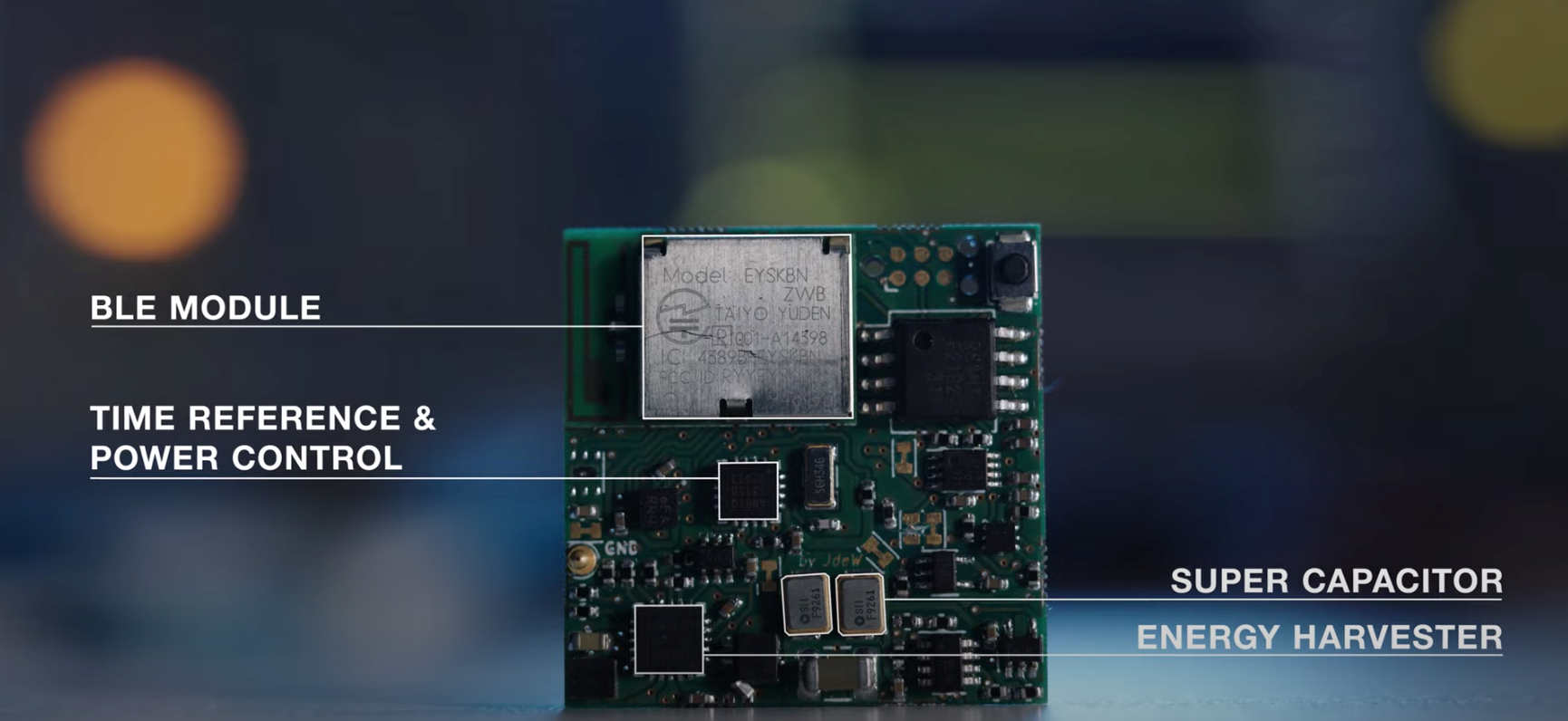Researchers invent Bluetooth that keeps on working even if power runs out
Internet of Things now possible without batteries or continuous power, thanks to the invention of 'intermittently-powered bluetooth' FreeBie
If it were up to TU Delft researchers Jasper de Winkel and Przemysław Pawełczak, the future of the Internet of Things (IoT) would be one without batteries. They have now added energy-efficient two-way communication via intermittently-powered Bluetooth to their arsenal for trouble-free IoT communication, even if the energy runs out for a while. They designed FreeBie: with which Bluetooth can continue to work when the power runs out. The GameBoy Forever was developed by the same researchers.
The world is rapidly moving towards an omnipresent Internet of Things – trillions of devices taking sensor measurements, performing calculations, and communicating with each other. “We want these devices to be free of batteries, as these are hazardous, bulky and they have a chemical impact on the environment,” says Jasper de Winkel. Intermittent computing allows these devices to perform their essential functions on harvested – and thereby often intermittent – energy alone, without ever losing data. “The things part was already solved. Now, with intermittently-powered Bluetooth, we have also addressed the internet part.”
Wireless communication standard
Prior frameworks for battery-free communication were one-directional only, harvesting sufficient energy to send a packet of data and ‘hoping it arrives’. The TU Delft researchers, however, wanted to unleash the full potential of the Bluetooth protocol while being powered by harvested energy. “It is one of the most widely used wireless communication protocols worldwide,” Przemyslaw Pawelczak says. “Most importantly, it is a bi-directional communication protocol, allowing firmware updates and remote device configuration, which would be hard with one-directional communication.”
Energy efficient
Their implementation, called FreeBie, is extremely energy efficient. De Winkel: “To maintain a connection using a standard Bluetooth implementation, the Bluetooth chip can be put in sleep mode whenever the IoT-device is idle. By saving the exact state, however, we can switch the chip off completely, reducing energy consumption by an order of magnitude.”
They achieved their energy-efficient implementation using commercially available hardware. Pawelczak: “Should we integrate our solution on a dedicated system-on-a-chip, we would then be able to provide the most sustainable, low-power Bluetooth implementation that is available on the market.” Major Bluetooth chip suppliers have already shown great interest.
Smartwatch
To demonstrate that their novel architecture enables never-before seen IoT applications, they provided two implementations as case studies: a solar-powered battery-free smartwatch that synchronises with a smartphone, showing time and email notifications; and also wireless firmware updates using Bluetooth. “That has never been done before under intermittent-power.” De Winkel adds: “We hope that it will open the door for other wireless protocols: intermittently-powered Wi-Fi, 5G, 6G, you name it.”
More information
The hardware and software of the FreeBie system has been released as open source and the researchers will present their findings at the 2022 MobiSys conference this June.
Source code of FreeBie: http://github.com/tudssl/freebie/.
Article: Jasper de Winkel, Haozhe Tang, and Przemysław Pawełczak (Delft University of Technology) Intermittently-Powered Bluetooth that Works, in Proceedings ACM MobiSys June 17-July 1 2022, Portland, OR, USA.
CONTACT
Przemyslaw Pawelczak is an Associate Professor in the Embedded and Networked Systems Group at TU Delft. He can be reached via p.pawelczak@tudelft.nl and www.przemyslawpawelczak.com.
Jasper de Winkel, is main author, and PhD candidate in the same group. He can be reached via j.dewinkel@tudelft.nl and www.jasperdewinkel.com.
Press officer TU Delft Digital Society is Pauline Bijster, h.p.bijster@tudelft.nl or 0648421089.
